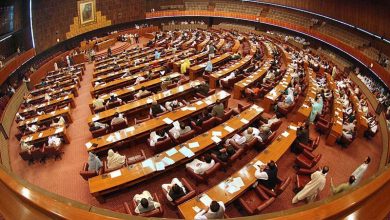Surveillance ramped up amid rising threats

In response to heightened security concerns following targeted attacks on police officers in Rawalpindi and Lahore amidst recent terrorism activities, intelligence agencies have intensified surveillance on militants associated with banned outfits, particularly those listed on the Fourth Schedulers.
According to sources, the decision to bolster monitoring and launch operations against extremist elements across Punjab, including Rawalpindi, stems from intelligence reports indicating potential threats posed by militants linked to banned outfits. The focus is on pre-emptive measures to counter any potential security breaches with vigilance, they said.
In a recent incident, militants affiliated with the banned Tehreek-e-Taliban Pakistan (TTP) reportedly engaged in a confrontation with Dolphin Force personnel after receiving medical treatment at a private hospital in Rawalpindi. Tragically, during the confrontation, a Dolphin Force personnel was martyred, while another sustained serious injuries.
This incident highlighted the grave risks faced by law enforcement personnel in combating militant activities.
Following these incidents, law enforcement agencies have expanded their scope of monitoring to include various banned organisations, their affiliated elements, and individuals listed on the Fourth Schedule.
The Fourth Schedulers, numbering 123 in the Rawalpindi region alone, are under scrutiny. Among them, 51 are from Rawalpindi district, 32 from Attock, 36 from Chakwal, and 4 from Jhelum. While most individuals have submitted surety bonds as part of monitoring protocols, five individuals have not complied and have consequently been placed on the Fourth Schedule.
The monitoring of Fourth Schedulers extends beyond residence notifications and reporting obligations to the police. Authorities are now actively tracking their financial transactions, aiming to uncover any discrepancies or unusual patterns that may indicate illicit activities or external support. This includes scrutinising expenditures that seem disproportionate to their declared income or resources.
Sources further said a key directive from law enforcement agencies is to investigate sources of income for Fourth Schedulers that do not align with their known financial means. Authorities are tasked with tracing the origins of any additional funds, identifying the channels through which they are received, and uncovering the individuals or entities providing financial support.



